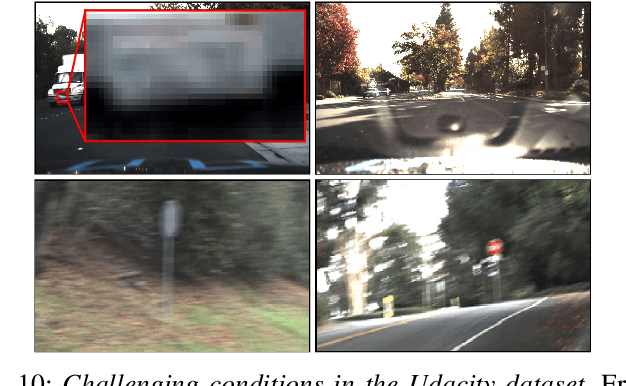Camera Condition Monitoring and Readjustment by means of Noise and Blur
Paper and Code
Dec 10, 2021



Autonomous vehicles and robots require increasingly more robustness and reliability to meet the demands of modern tasks. These requirements specially apply to cameras because they are the predominant sensors to acquire information about the environment and support actions. A camera must maintain proper functionality and take automatic countermeasures if necessary. However, there is little work that examines the practical use of a general condition monitoring approach for cameras and designs countermeasures in the context of an envisaged high-level application. We propose a generic and interpretable self-health-maintenance framework for cameras based on data- and physically-grounded models. To this end, we determine two reliable, real-time capable estimators for typical image effects of a camera in poor condition (defocus blur, motion blur, different noise phenomena and most common combinations) by comparing traditional and retrained machine learning-based approaches in extensive experiments. Furthermore, we demonstrate how one can adjust the camera parameters (e.g., exposure time and ISO gain) to achieve optimal whole-system capability based on experimental (non-linear and non-monotonic) input-output performance curves, using object detection, motion blur and sensor noise as examples. Our framework not only provides a practical ready-to-use solution to evaluate and maintain the health of cameras, but can also serve as a basis for extensions to tackle more sophisticated problems that combine additional data sources (e.g., sensor or environment parameters) empirically in order to attain fully reliable and robust machines.
 Add to Chrome
Add to Chrome Add to Firefox
Add to Firefox Add to Edge
Add to Edge